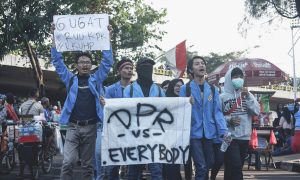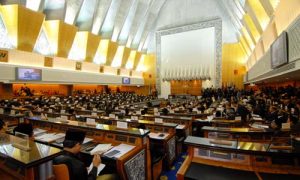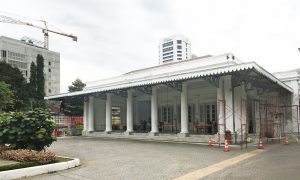In the 2019 election, a sizeable portion of the military proxy party’s electoral candidates were “pulled” (phalang dud) from other parties.
Archives
A plague of epidemics throughout Myanmar history
For centuries a cross roads of Asia, Myanmar has also suffered the attendant waves of epidemic and endemic disease.
Philippines beyond clichés series 1 #1: Celebrity culture
...globally there are many places where innovation is happening in television and in other forms of media, and the Philippines is definitely one of those places.
Universal coverage without universal testing: Thailand’s delays in access to testing may be costly
Social distancing and travel bans won’t save Thailand from COVID-19 writes Anthony C. Kuster.
Reflections on the future of Myanmar Studies
Where to now for Myanmar Studies? New Mandala co-founder Nicholas Farrelly reflects on a rapidly changing field.
Progress in democratic culture is being stifled in Indonesia
While community level developments show a rise in engagement with democratic culture, the government appears to extending the reach of repressive legislations and ignore hate speech and intolerance.
Nick Cheesman in conversation with Sumit K. Mandal on “Becoming Arab”
A discussion on the power and limits of colonial racial categories; Hadramis, Sayyids and Sharifas in maritime Southeast Asia; modernity and cultural hybridity; the descendants of Arabs in the Malay world today;
Can we avoid Myanmar’s isolation over the Rohingya?
Recent experience suggests that once Myanmar sees itself as isolated and victimised, it can be much harder to influence to change its approach on the Rohingya.
The political economy that Perikatan Nasional inherits – and will have to tackle
Malaysia has another new government; Tricia Yeoh looks at the ramifications of past leadership approaches on the new coalition's future.
Jakarta voters: leaders are key in cuing policy assessments
Research shows most voters use shortcuts to assess public policy. Afrimadona argues that in Jakarta, the leader associated with the policy is key, even if voters might lean elsewhere with different information.
The partisan history of police power in Thailand
Paul Chambers looks back at the politicisation of the Royal Thai Police, before turning to the palace's recent personalisation of authority over an institution often overshadowed by the military.
Anakot Mai: ‘lawfare’ and Future Forward Party’s legacy
Future Forward successfully convinced younger Thais to give democracy another try, argues Khemthong Tonsakulrungruang.
 Facebook
Facebook  Twitter
Twitter  Soundcloud
Soundcloud  Youtube
Youtube  Rss
Rss 










